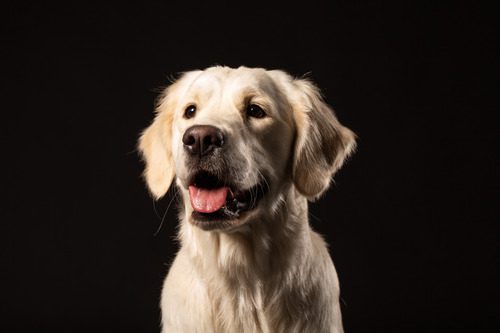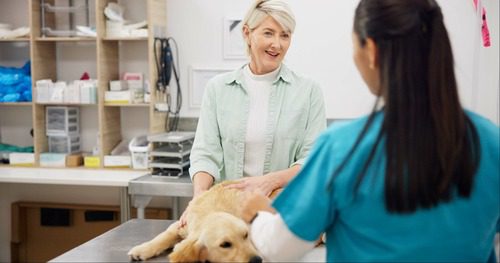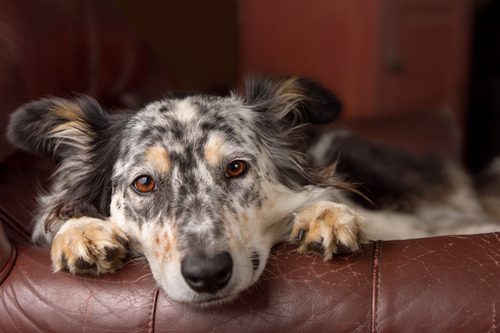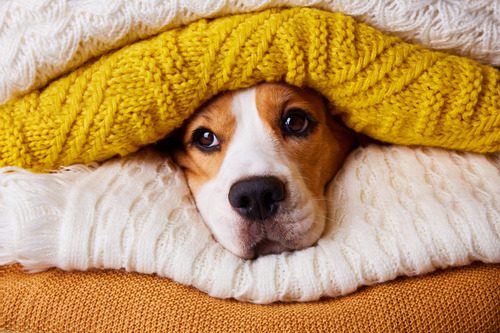11 Reasons Why Your Dog is Growling
Dogs are man’s greatest friend, and they are known for their companionship and loyalty to their owner but sometimes their behavior can be perplexing and daunting. Like all animals, dogs communicate differently and one of the most common forms of communication is growling. Although growling is a behavior that comes naturally to dogs, it can also mean that your dog is uneasy, frightened, or feels threatened. If your canine is growling, it’s critical to identify the reason why and resolve the underlying problem. In this piece, we’ll examine the X potential causes of your dog’s growling.
Agitation
Like humans, dogs can experience fear and anxiety. They may growl to warn the perceived threat to back off. This could be a person, animal, or situation that your dog is uncomfortable with. Dogs that are anxious or sacred show other signs like cowering, shaking, or hiding. So, it’s important to identify what’s causing your dog’s fear and address it. Gradual desensitization and counterconditioning techniques will help in reducing the fear and stress of your dog.
Pain
If your dog is growling more frequently than usual, if they suddenly growl when you contact a specific part of their body, or if they exhibit other signs of discomfort like limping and whimpering, they may be in pain. You should take them to the vet to rule out any potential medical conditions. Painful conditions like arthritis or dental issues can also make your dog feel uncomfortable and more prone to growl.
Protective behavior
Dogs are naturally protective of their pet parents and their territory. If your dog is growling at someone who approaches you or your home, it may be exhibiting protective aggression. This is natural but at the time it can be dangerous if your dog becomes extremely aggressive. This is especially common in breeds like German Shepherds, Rottweilers, and Dobermans. While it’s important to address any aggressive behavior, it’s also important to acknowledge and appreciate your dog’s protective instincts.
Resource guarding
Dogs are natural scavengers and have a strong urge to protect their resources such as toys, food, or other possessions. This can manifest in snarling if someone tries to take away their prized possession. It can become a serious issue if left unaddressed as it can escalate to a more dangerous habit like biting. So, if your dog is exhibiting resource-guarding behavior, it’s crucial to work with a trainer to address this issue and prevent inciting this behavior. It’s also important to ensure that your dog always has access to food, water, and toys to avoid triggering this behavior.
Frustration
Sometimes, dogs can become frustrated when they’re unable to do something they want to do, like go for a walk or play with a toy. Growling and other aggressive behavior may result from this annoyance. If your dog displays signs of frustration like pacing or pawing, it’s a clear sign that they are not receiving what they want. Identifying the source of your dog’s frustration and providing them with the appropriate outlets are important. For example, if your dog is growling because they want to play but you’re busy, you can try scheduling playtime into your daily routine.
Territorial behavior
Dogs growl when they perceive that their area is being invaded. This could be someone walking near your home or approaching your car while your dog is inside. This is specifically true for dogs that are not socialized properly. It’s important to train your dog to understand that not every person or situation is a threat. It is essential to work with your dog to teach them appropriate boundaries or seek a trainer’s help if needed.
Playfulness
Dogs may growl while playing. Although this behavior can be alarming to owners, it is entirely normal for dogs. Play growling is usually accompanied by other behaviors such as wagging tails, play bows, and relaxed body postures which can help to differentiate it from other forms of growling. However, it’s essential to understand that not all growling during play is hostile. Sometimes dogs can growl if they become too aroused or when the play becomes too rough. As a general guideline, it’s important to pay close attention to your dog’s overall demeanor during play. If you are unsure, it’s always best to err on the side of caution and seek expert assistance.
Possessive or Jealous
Dog growl when they feel jealous that the owner is giving attention to other people or animals. If your dog is exhibiting jealous behavior, it’s important to ensure that they are getting enough attention and love from you. Providing your dog with positive reinforcement training and plenty of one-on-one time can help reduce their jealousy and prevent growling.
Age-related changes
Aging can be a reason for your dog’s growling because as dogs age, they experience physical and cognitive changes that affect their behavior. Older dogs become more irascible, scared, and truculent. The most common age-related disease in dogs is CDS (cognitive dysfunction syndrome) which leads to changes in behavior like disorientation, confusion, and anxiety. If your dog’s behavior has changed suddenly or significantly, it’s important to take them to the vet to rule out any underlying health issues.
Tiredness
Dogs can also growl when they are worn out and want some time alone. When you approach your dog while they are sleeping or relaxing, they may growl because they don’t want to be disturbed. It’s essential to respect your dog’s need for rest and give them space when they need it.
Overstimulation
Dogs may growl when they’re overstimulated or excited. This can happen during playtime or when meeting new people or animals. If your dog is growling out of excitement, it’s important to monitor their behavior and ensure that they don’t become too aggressive. You can also try redirecting your dog’s attention to a toy or treat to help them calm down.
Conclusion
Growling is a natural behavior for dogs, but it can also be a warning sign that something is wrong. If your dog is growling, it’s important to identify the underlying issue and address it. This could involve consulting a trainer or visiting a vet to address the root problem with your dog.
If your dog is growling and showing signs of aggression in Las Vegas, NV, contact Sahara Pines Animal Hospital. Our vets can work with your pet on behavior and find out the underlying cause of the growling. Give us a call today at 702-876-7580, or request an appointment online.
Recent Posts
About Sahara Pines Animal Hospital
For exceptional veterinary care in an environment that welcomes you as family, partner with Sahara Pines Animal Hospital and we’ll help you meet all your pet’s needs for a lifetime.




